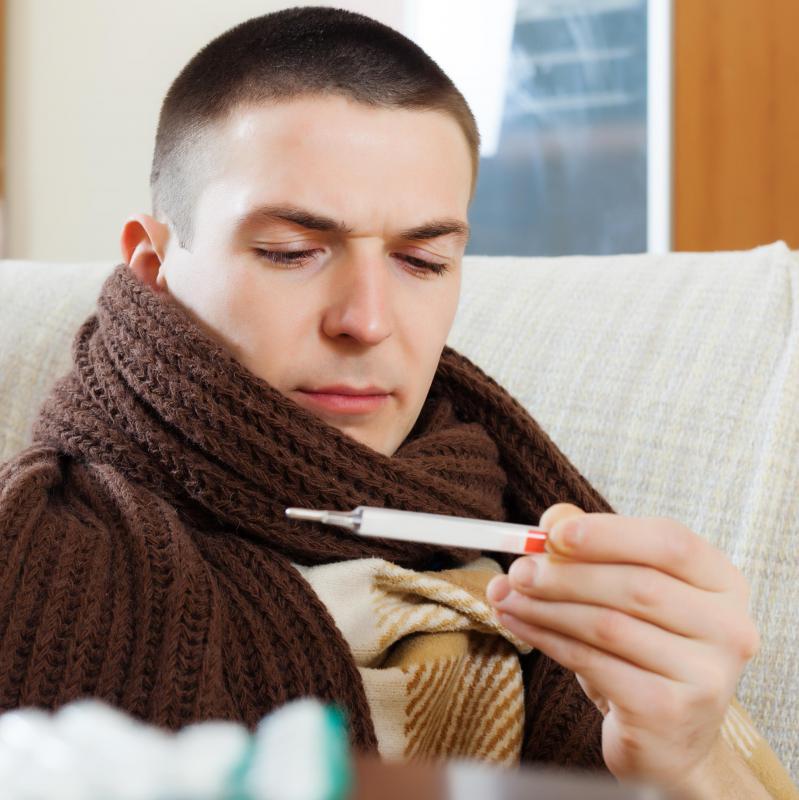At WiseGEEK, we're committed to delivering accurate, trustworthy information. Our expert-authored content is rigorously fact-checked and sourced from credible authorities. Discover how we uphold the highest standards in providing you with reliable knowledge.
What is Spontaneous Bacterial Peritonitis?
Spontaneous bacterial peritonitis (SBP) is an infection which occurs in some patients with ascites, a condition in which fluid accumulates in the abdomen. It tends to occur most commonly in patients with cirrhosis, and the condition can radically complicate the liver condition, leading to severe problems for the patient. Like other forms of peritonitis, spontaneous bacterial peritonitis is treated as a medical emergency, requiring prompt treatment and intervention for the best possible outcome.
The condition appears to be caused by the emergence of bacteria in the fluid which is associated with the ascites. These bacteria colonize the peritoneum, a membrane which lines the abdominal cavity and body organs, causing an infection to spread. Because ascites tends to make the abdomen tender and swollen, it is sometimes difficult to realize that peritonitis has set in. The patient develops fevers, chills, and a general feeling of malaise, and the spontaneous bacterial peritonitis can sometimes present in a very subtle way.

A doctor can diagnose spontaneous bacterial peritonitis by taking a sample of the fluid from the ascites and testing it for the presence of bacteria. Medical imaging may be used to confirm that the patient really has spontaneous bacterial peritonitis, rather than peritonitis caused by another issue, such as the rupture of an organ. Once the diagnosis is confirmed, the patient is given a course of antibiotics which are designed to address the infection.

Surgery is usually not necessary or even particularly helpful in spontaneous infectious peritonitis. The patient may be given anti-inflammatory drugs to manage the swelling and pain associated with the peritonitis, and he or she will be monitored closely for complications. If the condition clears up with antibiotics, an ultrasound imaging study may be performed on the liver to determine whether or not the organ has been damaged by the infection. Because people with cirrhosis already have degraded livers, damage is a serious potential complication of spontaneous infectious peritonitis.

If a patient has ascites, he or she may be monitored for the early signs of SBP. Some doctors recommend prophylactic antibiotics to prevent infection, and patients who have experience spontaneous bacterial peritonitis will need to take antibiotics until the ascites is resolved, to prevent the recurrence of prevention. This condition is one of several complications associated with severe cirrhosis and the development of ascites, illustrating the importance of caring for the liver and addressing liver problems at an early stage.
AS FEATURED ON:
AS FEATURED ON:















Discussion Comments
To avoid this potentially severe condition, it seems that not drinking excessive amounts of liquor and eating a healthy diet are two good ways to keep the liver healthy and avoid spontaneous bacterial peritonitis.
If my abdomen was swollen and I felt rotten, I would be in to see the doctor in a flash.Those symptoms just sound like something that is serious.
Post your comments